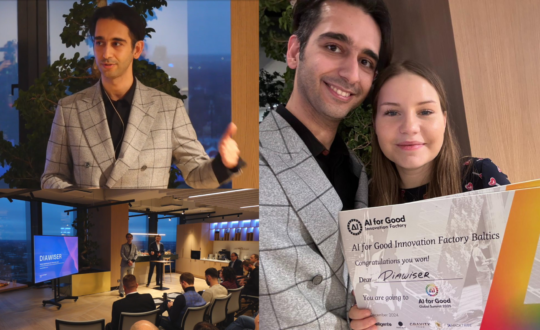Because of their highly directional transmissions, radios operating at millimeter wave (mmWave) frequencies need to perform beam management to establish and maintain reliable mmWave links. To achieve this objective, existing solutions mostly rely on explicit coordination between the transmitter (TX) and the receiver (RX), which significantly reduces the airtime available for communication and further complicates the network protocol design. Advances of the state of the art are presented in DeepBeam, a framework for beam management in mmWave networks that does not require pilot sequences from the transmitter, nor any beam sweeping or synchronization from the receiver. This is achieved by inferring (i) the Angle of Arrival (AoA) of the beam and (ii) the actual beam being used by the transmitter through waveform-level deep learning on ongoing transmissions between the TX to other receivers. In this way, the receiver can associate Signal-to-Noise-Ratio (SNR) levels to beams without explicit coordination with the transmitter. To demonstrate the generality of the proposed approach, we conduct an extensive experimental data collection campaign where we collect more than 4 TB of mmWave waveforms with (i) 4 phased array antennas at 60.48 GHz, (ii) 2 codebooks containing 24 one-dimensional beams and 12 two-dimensional beams; (iii) 3 receiver gains; (iv) 3 different AoAs; (v) multiple TX and RX locations. Moreover, we collect waveform data with two custom-designed mmWave software-defined radios with fully-digital beamforming architectures at 58 GHz. We also implement our learning models in FPGA to evaluate latency performance. Results show that DeepBeam (i) achieves accuracy of up to 96%, 84% and 77% with a 5-beam, 12-beam and 24-beam codebook, respectively; (ii) reduces latency by up to 7x with respect to the 5G NR initial beam sweep in a default configuration and with a 12-beam codebook. The webinar will also describe how to access to the waveform dataset and the full DeepBeam code repo. This talk is based on a paper (co-authored with Francesco Restuccia and Tommaso Melodia) presented at ACM MobiHoc 2021.

Meet Glidance, the US startup reinventing assistive technology with Glide,...
The AI for Good Innovation Factory is a global startup pitching competition that invites entrepreneurs leveraging AI to tackle the...
Innovation Factory
Empowering youth to actively participate in shaping their cities and...
The world’s youth account for 16% of the global population, making young people today the largest generation in history. (UN...
Youth
Meet Diawiser, the AI for Good Innovation Factory Baltics winner
The AI for Good Innovation Factory is a global startup pitch competition inviting entries from innovative startups utilizing AI to achieve the...
Innovation Factory

 Register here
Register here


